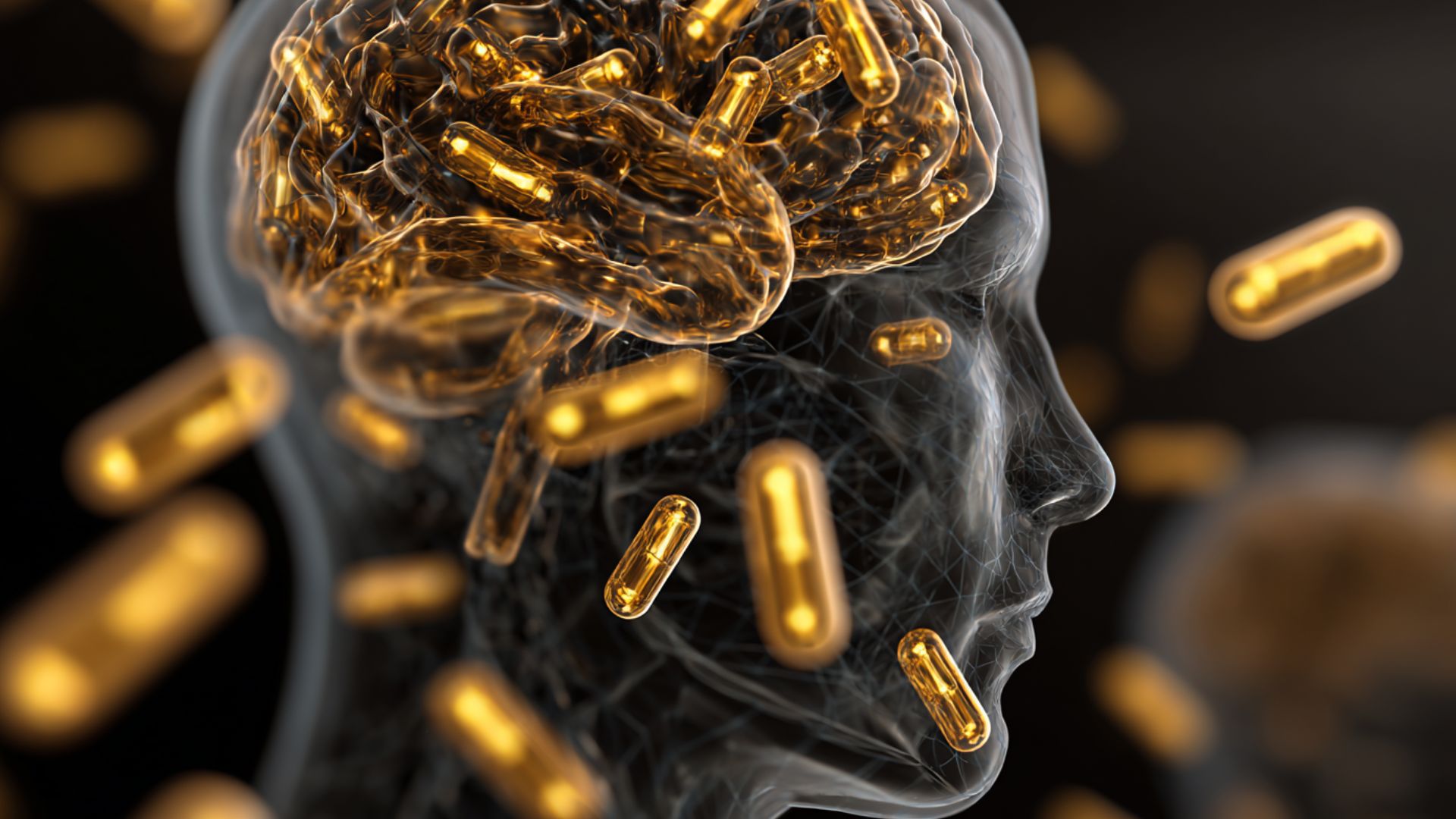In our fast-paced world, many of us spend most of our time indoors – whether it’s working at a desk, watching shows, or staying out of the sun to protect our skin. This modern lifestyle often means we’re not getting enough sunlight, which is a major source of vitamin D that’s crucial for brain health.
Most people associate vitamin D with strong bones. However, its role in keeping your brain sharp, focused, and emotionally balanced is just as critical but often overlooked. Low levels of this nutrient can quietly affect how you think, feel, and function every day.
In this article, we’ll dive deep into how vitamin D deficiency impacts your brain, from cognitive struggles and mental fog to mood swings and neurological issues, and share practical steps you can take to protect your mental well-being.
Why Your Brain Needs Vitamin D More Than You Think
Your brain is a complex organ that relies on a steady supply of nutrients to function at its best. Vitamin D is particularly important because it’s not just a vitamin – it acts like a hormone, influencing many processes in the brain. For starters, vitamin D helps regulate neurotransmitters, which are the chemicals that allow brain cells to communicate. It also plays a role in controlling inflammation, which can damage brain tissue if left unchecked. Perhaps most importantly, vitamin D provides neuroprotection by helping shield neurons from stress and injury, keeping your brain healthy and resilient as you age.
When your vitamin D levels are too low, these critical processes can start to falter. Without enough vitamin D, your brain’s chemical balance can shift, leading to problems like:
- Difficulty concentrating
- Memory lapses
- Changes in how you feel emotionally
These effects might start small – maybe you feel a bit sluggish or forgetful. However, over time, they can build up and affect your daily life in noticeable ways. For example, you might struggle to stay focused during a meeting or feel like your thoughts aren’t as clear as they used to be. Ensuring you have enough vitamin D is key to keeping your brain functioning at its best.
Cognitive Function and Concentration – The Vitamin D Link
Your ability to focus, process information quickly, and remember details depends heavily on vitamin D for cognitive function. This nutrient supports the brain’s ability to form new connections between neurons, which is essential for learning and memory, while also helping maintain healthy nerve cells that can communicate effectively. When vitamin D levels are low, these processes can slow down, making it harder to stay sharp.
For example, older adults with low vitamin D often show signs of cognitive decline, such as trouble recalling names or solving problems. However, it’s not just older people – younger adults and even kids can feel the effects. Students with low vitamin D might find it harder to concentrate in class or retain what they’ve studied, while workers might notice they’re less productive or struggle with tasks that require quick thinking.
Low vitamin D can also affect attention and processing speed. Imagine trying to follow a fast-paced conversation or multitask when your brain feels sluggish – it’s frustrating. By keeping your vitamin D levels in a healthy range, you can support your brain’s ability to stay focused, process information efficiently, and handle the demands of daily life.
Brain Fog and Focus: Could Vitamin D Be the Missing Piece?
Have you ever felt like it’s hard to think clearly or stay on task? This mental haze is often called brain fog and may be linked to vitamin D deficiency. When your levels are low, you might experience symptoms like:
- Forgetting where you parked your car or misplaced your phone
- Struggling to find the right words during a conversation
- Feeling mentally exhausted even after a good night’s sleep
- Difficulty focusing on simple tasks, like reading or replying to emails
These signs can sneak up on you, and many people mistake them for stress, lack of sleep, or just a busy lifestyle. But low vitamin D could be quietly contributing to brain fog. For instance, someone might think they’re just tired from a long week, but in reality, their brain isn’t getting the support it needs from vitamin D. If you’re noticing these signs, it’s worth considering whether your vitamin D levels might be part of the problem. A quick check with your doctor could reveal if this nutrient is the missing piece to clearing up your mental fog.
The Neurological Effects of Vitamin D Deficiency
Vitamin D deficiency doesn’t just affect how you think – it can also impact how your brain and nervous system function on a deeper level. The neurological effects of vitamin D deficiency can show up in ways that might surprise you. Some common symptoms include:
- Frequent headaches or migraines that seem to come out of nowhere
- Poor coordination, like tripping more often or feeling unsteady
- Muscle weakness or slight tremors in your hands
- Increased sensitivity to pain or discomfort
These deficiency neurological symptoms can start off mild but become more noticeable over time. In more severe cases, low vitamin D has been linked to a higher risk of serious neurological conditions, such as multiple sclerosis, Parkinson’s disease, or even dementia. Experts believe this is because vitamin D supports the immune system and protects nerve cells from damage. Without enough of it, your nervous system becomes more vulnerable, which can lead to these troubling symptoms.
For example, someone with low vitamin D might notice they’re clumsier than usual or have headaches that linger longer than they should. These signs might seem unrelated, but they could point to a deficiency that’s affecting the brain and nerves. Addressing low vitamin D levels early can help reduce these risks and keep your nervous system in better shape.
The Emotional Cost: Vitamin D and Mood Disorders
Your mood is closely tied to your brain’s chemistry, and vitamin D plays a big role in keeping it balanced. Vitamin D and mood disorders are connected because this nutrient helps regulate serotonin and dopamine, which are two brain chemicals that influence how you feel. When vitamin D levels are low, these chemicals can get out of balance, making you more likely to feel sad, anxious, or irritable.
For instance, people with low vitamin D are more likely to experience depression or anxiety, especially during the winter months when sunlight is limited. This is why seasonal affective disorder (SAD) is so common in colder climates. Less sunlight means less vitamin D, which can lead to feelings of sadness or low energy. Someone with SAD might feel unmotivated, avoid social activities, or struggle to find joy in things they usually love.
Even if you don’t have a diagnosed mood disorder, low vitamin D can still affect your emotional well-being. You might notice more mood swings, feel on edge for no clear reason, or have trouble staying positive. By boosting your vitamin D levels, you could see an improvement in your mood and feel more emotionally balanced, making it easier to tackle life’s ups and downs.
What You Can Do Today to Support Your Brain with Vitamin D
The good news is that you don’t have to live with the effects of vitamin D deficiency. There are simple, practical steps you can take to improve your vitamin D levels and brain health while protecting your mind from cognitive issues, mood problems, and neurological symptoms. Here’s how to get started:
- Get more sunlight. Spend 15–30 minutes in the sun a few times a week, ideally in the early morning or late afternoon to avoid harmful UV rays. Expose your arms, legs, or face to maximize vitamin D production.
- Eat vitamin D-rich foods. Add foods like fatty fish (salmon, tuna, sardines), egg yolks, and fortified products (milk, orange juice, or cereal) to your diet. Mushrooms exposed to sunlight can also be a great plant-based option.
- Consider supplements. If sunlight and food aren’t enough, vitamin D supplements are an easy way to boost your levels. Talk to your doctor to find the right dose, because too much vitamin D can cause side effects.
- Test your levels. A simple blood test can measure your vitamin D levels and let you know if you’re deficient. This can guide you on how much you need to increase your intake.
- Monitor your symptoms. Keep track of any brain fog, mood changes, or neurological symptoms. If they improve after boosting your vitamin D, that’s a good sign you’re on the right track.
Taking action for neuroprotection with vitamin D doesn’t have to be complicated. Start small – take a short walk in the sun or add a serving of salmon to your weekly meals. Over time, these changes can make a big difference in how your brain feels and functions. If you’ve been struggling with focus, low mood, or other symptoms, low vitamin D might be part of the puzzle. Check your levels, make a plan with your doctor, and give your brain the support it needs to thrive.












I've given up... the stress her office staff has put me through is just not worth it. You can do so much better, please clean house, either change out your office staff, or find a way for them to be more efficient please. You have to do something. This is not how you want to run your practice. It leaves a very bad impression on your business.
Please, leave your review
Write a comment: